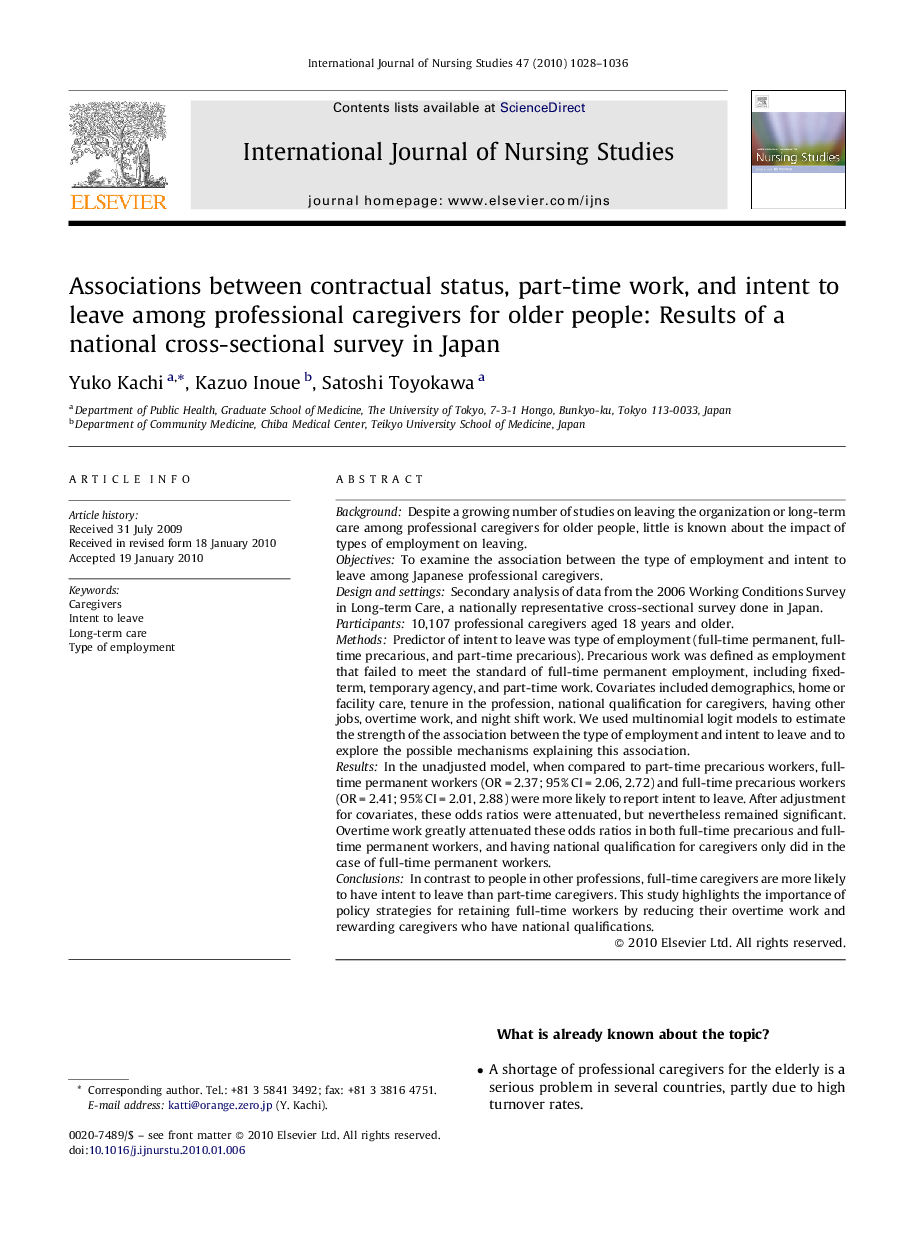| کد مقاله | کد نشریه | سال انتشار | مقاله انگلیسی | نسخه تمام متن |
|---|---|---|---|---|
| 1077657 | 1486581 | 2010 | 9 صفحه PDF | دانلود رایگان |

BackgroundDespite a growing number of studies on leaving the organization or long-term care among professional caregivers for older people, little is known about the impact of types of employment on leaving.ObjectivesTo examine the association between the type of employment and intent to leave among Japanese professional caregivers.Design and settingsSecondary analysis of data from the 2006 Working Conditions Survey in Long-term Care, a nationally representative cross-sectional survey done in Japan.Participants10,107 professional caregivers aged 18 years and older.MethodsPredictor of intent to leave was type of employment (full-time permanent, full-time precarious, and part-time precarious). Precarious work was defined as employment that failed to meet the standard of full-time permanent employment, including fixed-term, temporary agency, and part-time work. Covariates included demographics, home or facility care, tenure in the profession, national qualification for caregivers, having other jobs, overtime work, and night shift work. We used multinomial logit models to estimate the strength of the association between the type of employment and intent to leave and to explore the possible mechanisms explaining this association.ResultsIn the unadjusted model, when compared to part-time precarious workers, full-time permanent workers (OR = 2.37; 95% CI = 2.06, 2.72) and full-time precarious workers (OR = 2.41; 95% CI = 2.01, 2.88) were more likely to report intent to leave. After adjustment for covariates, these odds ratios were attenuated, but nevertheless remained significant. Overtime work greatly attenuated these odds ratios in both full-time precarious and full-time permanent workers, and having national qualification for caregivers only did in the case of full-time permanent workers.ConclusionsIn contrast to people in other professions, full-time caregivers are more likely to have intent to leave than part-time caregivers. This study highlights the importance of policy strategies for retaining full-time workers by reducing their overtime work and rewarding caregivers who have national qualifications.
Journal: International Journal of Nursing Studies - Volume 47, Issue 8, August 2010, Pages 1028–1036